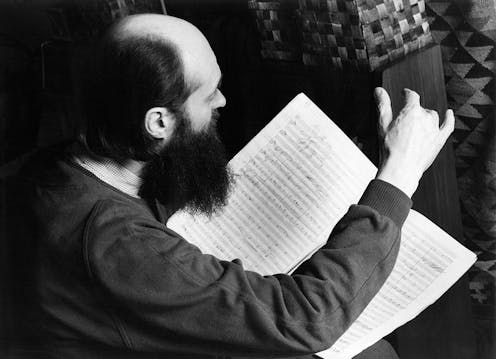How parents can help their kids understand, and enjoy, maths
 In lots of simple ways parents can help their kids understand and enjoy maths. Shutterstock
In lots of simple ways parents can help their kids understand and enjoy maths. ShutterstockTeaching maths concepts has long been considered the domain of the classroom teacher, with many parents often feeling unable to help their kids develop this skill. However, parents already do many things with their kids that can encourage mathematical thinking and help them see the relevance of mathematics in their everyday lives.
Cultivating this sense of relevance and interest in mathematics has been shown to be a key contributor to a child’s future success in this area. Here are some opportunities for developing mathematical thinking, which parents and kids can enjoy together.
Out and about
 Hand the map to the kids on your summer holiday.Shutterstock
Hand the map to the kids on your summer holiday.Shutterstock
With school holidays around the corner, many families will be taking trips to the coast or interstate to see Nan and Pop. This break gives parents great opportunities to engage their kids in different types of mathematical thinking.
Working out how many kilometres you will travel is an easy way to practise computation skills and develops an interest in map reading. Another calculation might be how far you can travel on one tank of fuel, then finding a place on the map to stop and fill up.
Older kids can be in charge of planning overnight stops after working out how far you can travel in one day. Challenge them by adding extra information:
If the speed limit is 100km, what is the latest time we can leave to arrive by 4pm?
This encourages them to think about the question and plan a method for finding a solution.
In the garden
Kids love getting dirty and playing in the garden. Parents can harness this enthusiasm and develop math skills at the same time. Spatial awareness is used when adding plants to the garden. Estimating the positions so the plants are evenly spaced is something we all do - why not give this job to your child?
 How far apart should the trees be? And how deep the holes?Shutterstock
How far apart should the trees be? And how deep the holes?Shutterstock
Estimating skills are also used when digging the hole for the plant. Determining how deep it needs to be is often calculated through guess and check, an identified problem-solving strategy.
Kids with understandings of multiplication could use an array to plan the positioning of carrots in the veggie patch. With parental supervision, older kids can apply their knowledge of ratios when making liquid fertiliser - one part plant food to three parts water.
In the kitchen
Getting the kids in the kitchen is a favourite holiday activity for many families. The pride and enjoyment kids get from baking cookies or helping prepare the family meal are invaluable. Mathematical knowledge and processes are a fundamental part of this experience.
Measuring quantities accurately is crucial if you want the cake to rise. Actively discussing this with kids brings the importance of this math concept to life.
Develop curiosity by presenting problem-solving opportunities:
We need 1 cup of sugar, but we have only these ¼ and 1/3 cups to measure with. What can we do?
And then ask again:
Great idea! What else could we do?
 How much pastry do we need for four pasties?Shutterstock
How much pastry do we need for four pasties?Shutterstock
Knowing that there is often more than one way to solve a problem provides comfort for those who think in different ways. Using scales to weigh ingredients reinforces the skill of reading these numbers and draws on knowledge of decimals. Calculating when the food will be ready uses knowledge of time, but also encourages basic number strategies, like counting by 5s, to be practised:
The recipe says ‘chill for 30 minutes’. It’s 11.50am now, when will it be ready?
Fractional concepts are developed when cutting the cake into equal parts. Every child wants their fair share of that chocolate cake!
At the shops
When you’re out at the shops, there are plenty of ways to get kids thinking about and exploring maths. Simple counting exercises with young kids are a great way to reinforce early number concepts like number sequences and cardinality:
1, 2, 3, 4, 5. We have 5 apples in the bag.
Another number concept easily practised at the shops is comparison:
Do we have more apples or oranges?
 How much change will you get if you buy 10 apples?Shutterstock
How much change will you get if you buy 10 apples?Shutterstock
As parents, we often choose the item that represents better value by comparing the “price per 100 gram” - verbalising your thinking helps kids to refine their own mental processes. Budgeting, adding monetary values and calculating change are all skills that benefit from practice in a real-life situation.
Giving older kids $10 and a small shopping list develops these skills as well as fostering a sense of independence. The post-Christmas sales give kids some purposeful reasons to apply knowledge of percentages, if only to convince you that new toy is a real bargain!
Parents can easily use everyday experiences to reinforce and develop mathematical skills and support their kid’s learning of this important subject area. Showing how maths is used in daily tasks provides the perfect balance for the formal learning of the classroom. Mathematics is an area where both teacher and parent input is necessary.
Kylie Robson does not work for, consult to, own shares in or receive funding from any company or organisation that would benefit from this article, and has no relevant affiliations.
Read more http://theconversation.com/how-parents-can-help-their-kids-understand-and-enjoy-maths-34698
















